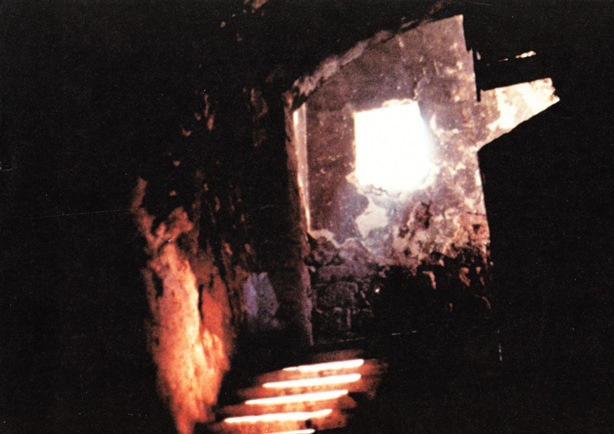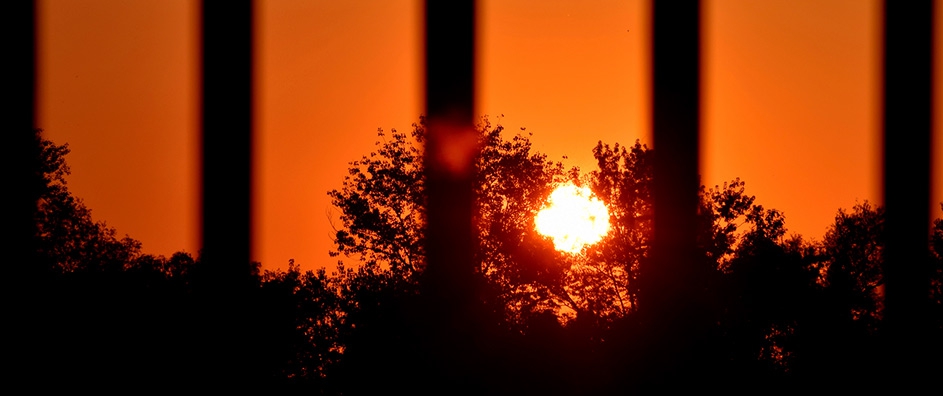The views expressed in our content reflect individual perspectives and do not represent the authoritative views of the Baha'i Faith.
After all, even in prison, a man can be quite free. His soul can be free. His personality can be untroubled. He can be at peace. – Oscar Wilde
After being forty years a prisoner I can tell you that freedom is not a matter of place. It is a condition. Unless one accept dire vicissitudes he will not attain. When one is released from the prison of self, that is indeed a release. – Abdu’l-Baha, Star of the West, Volume 2, p. 4.
Verily, thou didst incarcerate and make Me a prisoner. Dost thou imagine that imprisonment is a loss to Me, that imprisonment is a humiliation for Me? This imprisonment is a glory for Me because it is in the pathway of God. I have not committed a crime. – Baha’u’llah’s Letter to the Sultan of Turkey, quoted by Abdu’l-Baha in The Promulgation of Universal Peace, p. 224.
Call me dense, but somehow I didn’t fully realize, until probably a decade after I’d become a Baha’i, that I had declared my belief and commitment in a Faith that emerged from a succession of prisons.
All three of the central figures of the Baha’i Faith—the Bab, Baha’u’llah and Abdu’l-Baha—were prisoners. The Bab’s mission to herald the coming of Baha’u’llah only lasted six years until the Ottoman government executed him—and he suffered almost half of those years incarcerated in the remote prison-fortresses of Maku and Chihriq in present-day Azerbaijan.

The Siyah Chal Prison (Black Pit)
Baha’u’llah, the prophet and founder of the Baha’i Faith, spent forty years, virtually the entire last half of his life, in a succession of brutal exiles and prisons. He experienced the first intimations of his revelation while weighed down with heavy chains in the notorious Black Pit of Tehran in 1852, where he and many other Babis had been summarily imprisoned for their beliefs. Exiled from his homeland to four successive destinations, he, his family and a few of his followers finally became prisoners in the fortress and prison-city of Akka, Palestine, reputed at the time to be one of the worst prisons in the world.
Abdu’l-Baha, Baha’u’llah’s son and successor, and the exemplar of the Baha’i Faith, was also imprisoned with his father and his family, and later by the Ottoman regime, until they were overthrown by the Young Turks’ revolution in 1908. When he was released, Abdu’l-Baha was 64 years old, after more than four decades of house arrest, harsh jails and the constant threat of death.
Here’s the even more amazing part: at any time, The Bab, Baha’u’llah and Abdu’l-Baha—who spent a total of almost a hundred years in confinement—could have easily left their prisons. Because they had committed no crime, and suffered only as a result of proclaiming a new Faith, they each could have renounced their beliefs and teachings in exchange for their release. But that never happened. Instead, Baha’u’llah:
…endured the most afflictive of calamities. He bore countless agonies and ills. He enjoyed not a moment’s peace, drew not an easeful breath. He wandered, homeless, over desert sands and mountain slopes; He was shut in a fortress, and a prison cell. But to Him, His pauper’s mat of straw was an eternal throne of glory, and His heavy chains a sovereign’s carcanet. By day, by night, He lived under a whirring sword, and He was ready from moment to moment for death on the cross. He bore all this that He might purify the world, and deck it out with the tender mercies of the Lord God; that He might set it at rest; that conflict and aggression might be put to flight, the lance and the keen blade be exchanged for loving fellowship, malevolence and war turn into safety and gentleness and love, that battlefields of hate and wrath should become gardens of delight, and places where once the blood-drenched armies clashed, be fragrant pleasure grounds; that warfare should be seen as shame, and the resort to arms, even as a loathsome sickness, be shunned by every people; that universal peace raise its pavilions on the loftiest mounts, and war be made to perish forever from the earth. – Abdu’l-Baha, Selections from the Writings of Abdu’l-Baha, pp. 257-258.
Can you imagine it?
Of course, every prophet of God has suffered. From public rejection to exile to crucifixion, none have escaped the wrath of the clergy, the government and the public for bringing a new message of love, peace and unity. If you think about it, though, no global Faith has ever witnessed the intense, protracted suffering the central figures of the Baha’i Faith endured to give their message to humankind:
When Baha’u’llah arrived at Akka, through the power of God He was able to hoist His banner. His light at first had been a star; now it became a mighty sun, and the illumination of His Cause expanded from the East to the West. Inside prison walls He wrote Epistles to all the kings and rulers of nations, summoning them to arbitration and universal peace…
Read it and consider: one prisoner, single and solitary, without assistant or defender, a foreigner and stranger imprisoned in the fortress of Akka, writing such letters to the Emperor of France and Sultan of Turkey. Reflect upon this: how Baha’u’llah upraised the standard of His Cause in prison. Refer to history. It is without parallel. No such thing has happened before that time nor since… – Abdu’l-Baha, The Promulgation of Universal Peace, p. 28.
For me, understanding the suffering and forbearance the Bab, Baha’u’llah and Abdu’l-Baha evinced, in the face of enormous pain, makes their message even more powerful.
















Comments
Sign in or create an account
Continue with Googleor